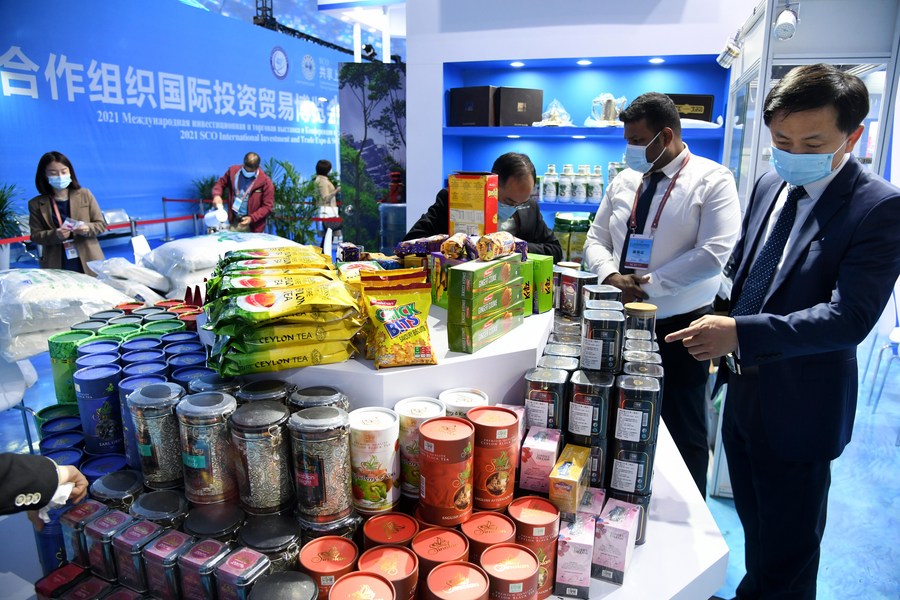China’s global community vision shows the path ahead

The Shanghai Cooperation Organization (SCO) has, over the past 23 years, evolved from a regional project focused on solving border issues to a multifaceted international organization. It effectively addresses diverse security threats, promotes stability and fosters cooperation among member states to ensure peace and security in the Eurasian region.
The SCO’s continuous expansion — Iran joined the group last year and Belarus is completing its accession this year — has extended its regional boundaries, making it a truly international entity.
READ MORE: Wang Yi meets Iranian deputy foreign minister at SCO conclave
Security remains a strong area of the SCO. Amid global geopolitical upheavals, where old rules no longer apply and new ones have yet to be established, the world finds itself in a state of distrust and dysfunction, with a “war of all against all” mentality. In this context, the SCO and its main security body — the Regional Anti-Terrorist Structure, or RATS — play an increasingly important role. This year, the RATS council approved a counterterrorism program for 2025-27.
For many years, SCO countries have successfully worked in the security sector, robustly countering the three evils of terrorism, extremism and separatism. Last fall, Kyrgyzstan hosted the first-ever joint anti-terrorist exercises between the SCO and the Commonwealth of Independent States, with representatives from 11 countries participating, including Armenia, Belarus, China, India, Iran, Kazakhstan, Pakistan, Russia, Tajikistan and Uzbekistan.
In my view, China’s responsibilities in the field of security within the SCO are expanding. Alongside cooperation among security forces and defense departments, there is an increasing collaboration in law enforcement.
China’s role is becoming more active in ensuring security and political stability in SCO member states. Given the extraterritorial nature of modern threats, there is a growing need to enhance constructive interaction among partner countries.
As a responsible global power, China demonstrates to the world through the SCO’s success that there is always room for compromise. By focusing on development and cooperation rather than conflicts and disputes, greater prosperity can be achieved, benefiting all parties involved.
Today, the SCO serves as a prototype and model for a new, fairer mechanism of international interaction. Essentially, China is successfully testing its global concept of a community with a shared future for mankind within the SCO framework, proving its feasibility in practice. The SCO has become a platform where states with different political traditions and diplomatic practices meet, negotiate and establish connections.
In security studies, discursive political practices are of great importance. Threat assessment is a matter of political choice. Similarly, SCO countries have made their choice — cooperation over confrontation, dialogue over bloc divide, and economic interaction over sanctions and trade wars.
SCO participants and observers share an understanding of common, indivisible security and the goal of strengthened partnership to maintain peace. This has led to the development of the “SCO style” — a mode of behavior where states engage within a cooperative framework.
Even amid conflicts, SCO countries find common ground and create space for dialogue. In the realm of security, having a “conflict-free zone” is crucial, and the SCO has emerged as such a platform.
Nowadays despite increasing conflicts globally and the complex nature of global challenges, the SCO is utilizing every opportunity for consolidation and active international positioning. Amid the crisis of universal multilateral institutions and the fragmentation of the global order, the SCO’s significance is growing.
Regarding the trend of regionalization, it is essential to note that the voice of Central Asia within the SCO holds great importance. Central Asia is the heart of the group, and connects various partners into a cohesive whole. Moreover, due to the constructive and nonaligned nature of the SCO, the role and potential of middle powers, such as Kazakhstan, are growing within the group.
It is not surprising that a diverse range of countries, from Saudi Arabia to Macedonia and Serbia, are interested in partnering with the SCO, and see it as a convenient platform for dialogue and an emerging center of power. The SCO attracts them with its stability, absence of double standards, adherence to principles of international law, and cultural diversity.
Currently, Kazakhstan holds the SCO chairmanship. As one of the founding countries, it has consistently supported the “Shanghai Spirit” and emphasized the SCO’s growing influence and status since the group’s inception on June 15, 2001.
Kazakhstan’s practical approach focuses on enhancing mutually beneficial trade as well as economic and technological cooperation. Since assuming the SCO chairmanship in July last year, it has conducted over 90 events and meetings, including energy, digital and tourism forums. More than 30 documents have also been developed in various cooperation fields.
ALSO READ: A bridge linking two civilizations
Adhering to the principle of “hot economy, cold politics”, Kazakhstan has proposed major initiatives such as the creation of an SCO investment fund and an economic preferences database.
The SCO summit in Astana, the capital of Kazakhstan, from July 3 to 4 will be an event of immense geopolitical significance. It is expected that high-level representatives from all SCO partner states and partner organizations will attend the summit. The broadest possible engagement of interested parties will underscore the strategic importance and influence of the SCO in the contemporary international environment.
The author is chief expert at the Kazakhstan Institute for Strategic Studies under the President of the Republic of Kazakhstan.
The views do not necessarily reflect those of China Daily.


